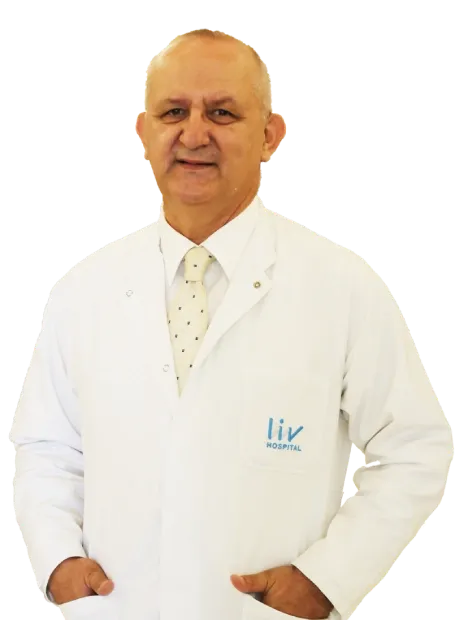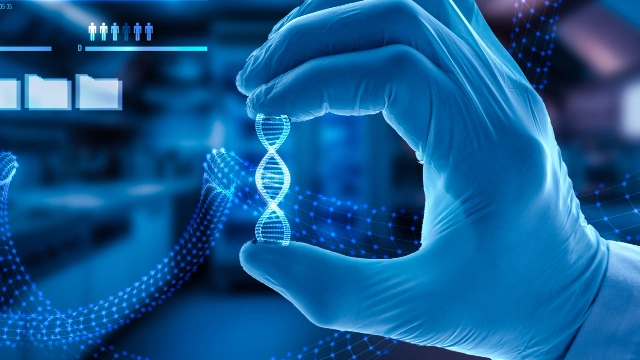Genetic Diseases
Last Update Date: 9/15/2025 1:44:56 PM
The Department of Genetic Diseases specializes in the diagnosis, treatment and research of genetic predisposition, genetic disorders and genetic diseases as a branch of medicine. The use of advances in genetic science and the data obtained in medical science is relatively new and still open to development. The opportunities it creates in terms of the treatment and follow-up of some diseases are revolutionary. Today, it is even possible to intervene in diseases by directly changing or editing certain genes. Physicians specializing in these areas are responsible for the diagnosis and treatment of many diseases affected by genetic factors. For this, they can follow interdisciplinary approaches.
What is the Department of Genetic Diseases?
The Department of Genetic Diseases specializes, as a branch of medicine, in the diagnosis, treatment and research of genetic predisposition, genetic disorders and genetic diseases. The use of advances in genetic science and the data obtained in medical science is a relatively new situation and is still open to development. The opportunities created by this in terms of treatment and follow-up of some diseases are revolutionary. Today, it is even possible to intervene in disorders by directly changing or altering certain genes.
Physicians specializing in this field are responsible for the diagnosis and treatment of many diseases affected by genetic factors. For this purpose, they can also follow interdisciplinary approaches.
Liv Hospital Genetic Diseases Evaluation Clinic
Quality and reliable polyclinic and laboratory services are provided for the diagnosis, follow-up and treatment of all kinds of hereditary diseases from the pre-pregnancy period with modern up-to-date devices at the Genetic Diseases Diagnostic Clinic within Liv Hospital.
The main services provided in this context are:
- Children or adults with all kinds of rare diseases.
- Suspected genetic disorder in a newborn baby, all kinds of muscle diseases • Children with growth-development failure, short height
- Disorders of sex development
- Those who are in a consanguineous marriage and before or during pregnancy
- Risky pregnancies (Pregnant women with ultrasound anomaly, screening risk)
- Recurrent miscarriages (2 or more miscarriages)
- Inability to have children (infertility)
- Preimplantation genetic diagnosis (PGD, PGS) consultation, which requires embryo analysis in in vitro fertilization
At the same time, the following services are provided in the Genetics Laboratory:
- Genetic Disorders Evaluation Diagnostic Clinic offers all cytogenetic and molecular genetic testing services from a single sample in accordance with the indication in all branches, especially haemato-oncology, obstetrics, pediatrics.
- Whole Exome Sequencings (WES) and NGS (Next Generation Sequencing) Panels
- For this purpose, all the genes in a person (about 23,000 genes) are genetically analyzed and about 7000 diseases are screened.
- Genetic Diseases Evaluation Diagnostic Clinic offers “Whole Exome sequencings ” (WES), clinical exome sequencing (CES) and NGS panel testing services in which multiple genes are analyzed simultaneously.
With these tests, it is ensured that the responsible genes are identified and patients are diagnosed in individuals with genetic, metabolic/neurometabolic disorders, who have been evaluated in detail in the clinic and laboratory, but cannot be diagnosed.
Which Diseases Do Genetic Diseases Treat?
The range of diseases that the genetic disorders department treats is quite wide. Help can be obtained from this specialty in the diagnosis and treatment of many disorders that may be related to genetic predisposition and transmission.
We can list some of them as follows:
Hereditary Genetic Diseases: Genetic diseases with familial transmission. Examples may include cystic fibrosis, osteogenesis imperfecta and growth hormone deficiency syndrome.
Metabolic Diseases: Genetic diseases associated with metabolic disorders. Conditions such as phenylketonuria, galactosemia, glycogen storage diseases are in this category.
Neurogenetic Diseases: Genetic disorders related to the nervous system. Examples such as Huntington's disease, Duchenne muscular dystrophy and spinal muscular atrophy can be given.
Genetic Cancer Syndromes: Diseases that carry an increased risk of cancer due to certain gene mutations. For example, the risk of breast cancer or ovarian cancer due to BRCA1 or BRCA2 gene mutations.
Cardiovascular Diseases: Conditions such as heart diseases based on genetic factors, cardiomyopathy, Marfan syndrome.
Various Syndromes: Genetic syndromes such as Down syndrome, Turner syndrome, Klinefelter syndrome.
Hemoglobinopathies: Genetic diseases related to hemoglobin, such as beta thalassemia, sickle cell anemia.
However, the services offered by the genetic diseases department are not limited to the diagnosis, follow-up and treatment of these diseases. This department also provides services on genetic testing, genetic counseling and family planning.













